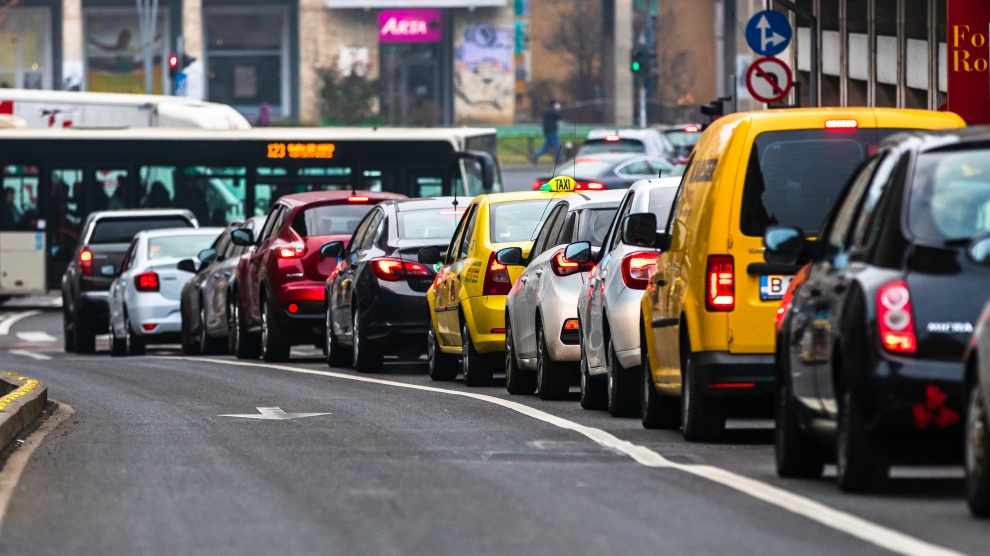Air pollution costs each resident of the Romanian capital Bucharest more than 3,000 euros per year, according to a new study carried out for the European Public Health Alliance (EPHA). The amount is highest in the European Union. Three other cities in emerging Europe: Warsaw in Poland, Bratislava in Slovakia, and Sofia in Bulgaria also feature in the top 10 cities where per capita damage is highest.
At the other end of the scale, three cities in Estonia (Tallinn, Tartu and Narva) are amongst those where pollution causes the least per capita economic damage.
The EPHA study quantifies the monetary value of premature death, medical treatment, lost working days and other health costs caused by the three air pollutants causing the most illness and death: particulate matter, ozone and nitrogen dioxide.
Air pollution is the number one cause of premature deaths from environmental factors in Europe, according to the EEA. The problem is greatest in cities, where two thirds of Europeans live. Two thirds of cities break clean air standards set by the World Health Organisation. Particulate matter, ozone and nitrogen dioxide cause about 400,000 early deaths annually.
“Our study reveals the magnitude of the damage toxic air is causing to people’s health and the huge health inequalities that exist between and within countries in Europe,” says EPHA Acting Secretary General Sascha Marschang. “To a large extent, the situation can be influenced by transport policies and cities can reduce costs by switching to zero-emission urban mobility. Governments and the European Union should bear these costs in mind for transport policy in order to support, not to hinder, a healthy recovery from the Covid-19 pandemic.”
The study examined 432 cities in all EU countries plus the UK, Norway and Switzerland. Added together, air pollution costs for city residents amount to 166 billion euros per year, or 385 million euros per city on average.
When grouped by city rather than per capita cost, those living in big, expensive cities tend to face the highest pollution costs due to population density, higher earnings and expenses. But cities in Central and Eastern Europe buck this trend and feature high in the impact table despite lower income levels as particularly bad air pollution takes its toll. Hence the average Bucharest resident faces the highest costs, at 3,004 euros, while those in unpolluted Santa Cruz de Tenerife in Spain face the least, at 382 euros.
Particulate matter causes the vast majority of costs, 82.5 per cent on average, followed by nitrogen oxide (15 per cent, mainly from traffic) and ozone (2.5 per cent, from combustion). These proportions vary considerably between cities. The CEE region has the highest rate of air pollution deaths while Southern Europe has the highest rate of chronic illnesses.
Transport is a major source of urban air pollution, costing 67- 80 billion euros in the EU28 in 2016, according to a previous EPHA report. This study shows that even small changes to transport habits and city policies can make a substantial difference to such costs. A one per cent increase in the average journey time to work increases the costs of particulate matter emissions by 0.29 per cent and those of nitrogen dioxide emissions by 0.54 per cent, the study finds. A one per cent increase in the number of cars in a city increases overall costs by almost 0.5 per cent.
The study, conducted by CE Delft, an independent research and consultancy organisation specialised in developing innovative solutions to environmental problems, is the biggest of its kind, in terms of number of cities and pollutants studied. Researchers took the latest complete data from Eurostat and official monitoring stations, from 2018, to calculate the harms caused and the costs related to resulting illnesses. Researchers excluded indoor air pollution, a significant cause of illness.
The EPHA is now calling for government policies to reduce oil-based transport with more sustainable, active and zero-emission alternatives, particularly walking, cycling and clean vehicles, based on e-mobility.
—
Unlike many news and information platforms, Emerging Europe is free to read, and always will be. There is no paywall here. We are independent, not affiliated with nor representing any political party or business organisation. We want the very best for emerging Europe, nothing more, nothing less. Your support will help us continue to spread the word about this amazing region.
You can contribute here. Thank you.







[…] Air pollution has a devastating cost for the people of Romania’s capital Bucharest […]